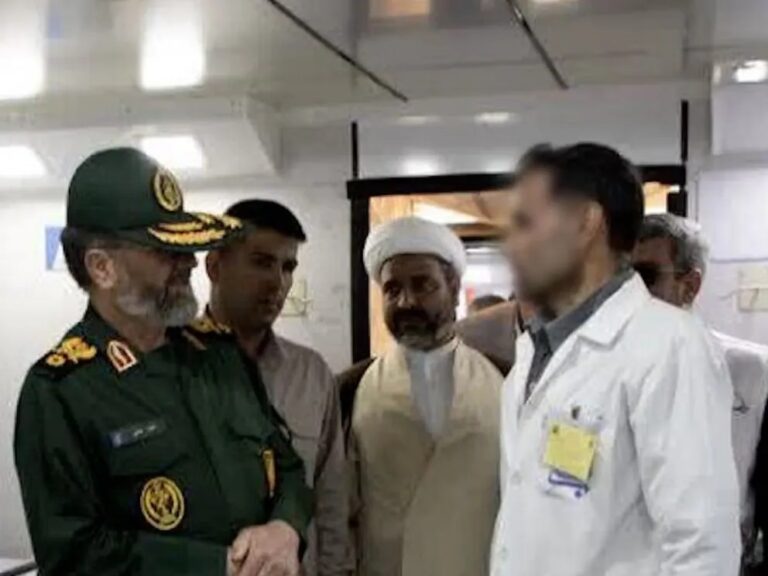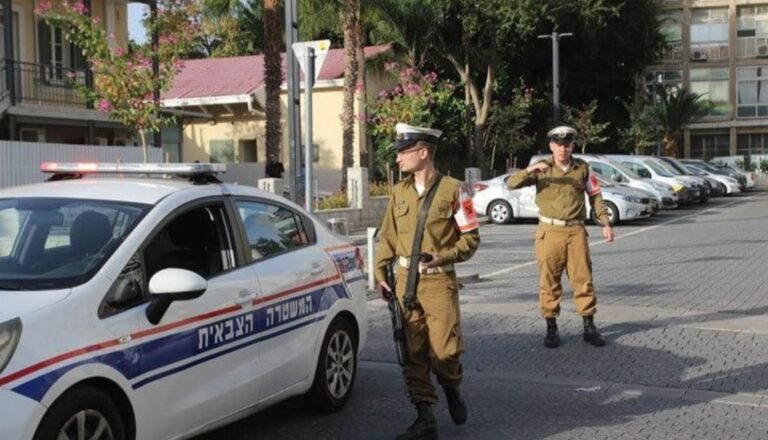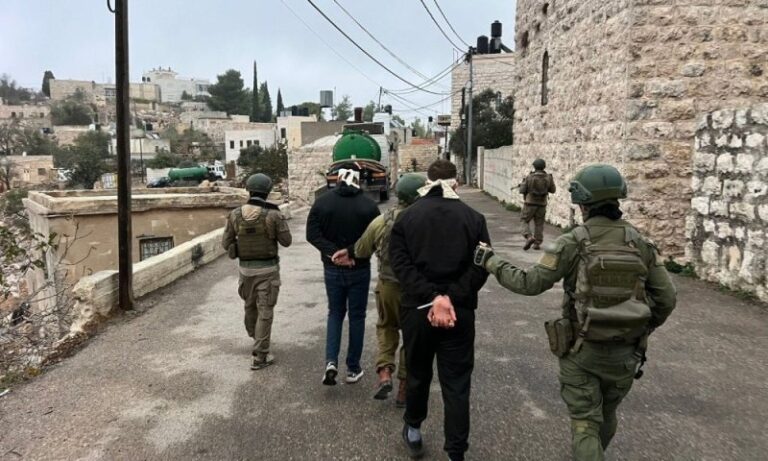He was tiny in stature, yet when he spoke, his animated voice and potent words electrified audiences of thousands. His drashos, each laden with wit, wisdom, and warmth—and a good measure of humor, are famous for moving even the most hardened soul to teshuvah and positive reflection. This was the power of Rav Yankel Galinsky zt”l.
And now, the messages of this venerated maggid can be understood and appreciated by English speakers, as well!
V’Higadeta on Elul and Rosh Hashanah is the first of its kind, an English translation of the Hebrew bestseller from Harav Yaakov Galinsky zt”l. In it, you will discover inspiring stories and insightful sichos from the masterful maggid of the generation—and your Elul and Rosh Hashanah will take on an entirely new meaning.
The following is an excerpt from this beautiful sefer:
Living in the Future – Never Lose Hope
קַוֵּה אֶל ה’, חֲזַק וְיַאֲמֵץ לִבֶּךָ, וְקַוֵּה אֶל ה’
Hope to Hashem; strengthen yourself and He will give you courage and hope to Hashem
Chazal teach, אִם רוֹאֶה אָדָם שֶׁהִתְפַּלֵּל וְלֹא נַעֲנָה, יַחֲזֹר וְיִתְפַּלֵּל. שֶׁנֶּאֱמַר: “קַוֵּה אֶל ה’, חֲזַק וְיַאֲמֵץ לִבֶּךָ, וְקַוֵּה אֶל ה'”, “If a person sees that he prays and is not answered, he should pray again, as it says, ‘Hope to Hashem; strengthen yourself and He will give you courage and hope to Hashem’” (Berachos 32b).
A Jew needs to put his hope in Hashem, and even if a situation doesn’t seem to be working out the way he wanted, he should still put his hope in Hashem and not lose his bitachon. He should daven, and then daven some more.
This is the avodah of Elul, and it is the lesson we must take away from this mizmor of Elul: to always look toward the future.
***
Once, a Jew went to his rav, heartbroken. He related that no matter how much effort he put into anything—whether in ruchniyus or in gashmiyus — he felt like he was trudging through mud. No sooner would he manage to remove one foot from the mire when the other one would get stuck…
The rav said to him, “It’s good that you are able to pinpoint your situation. You are stuck in the mire and trudging through it. But know, if you give up and stop moving forward, you will remain in the mud forever. If you keep trudging, every step you take will bring you to your goal!”
Only we need to know what our destination is and strive to reach it!
***
When I was imprisoned in Siberia, the Soviets were sending there anyone they perceived as an enemy of the Revolution. I was a great danger to Soviet Russia, you understand. Not just me, but my friends, too.
They also imprisoned the highest echelons of the regime and the highest officers of the Lithuanian army whom they had captured after occupying Lithuania. Fifteen generals and fourteen bishops, ministers, and senior officials were incarcerated with us. (By the way, when faced with adversity, a person’s true nature is revealed: the yeshivah bachurim helped each other, while the other prisoners stole from one another.)
They subjected us to hard labor, waking us up at six in the morning and forcing us to work fourteen hours a day without a break. We’d return each night, shaking from the extreme cold, weak and exhausted. Still, we were bnei yeshivah—we had to daven Ma’ariv before we retired, despite our exhaustion. And in the mornings we would awaken before the others to daven Shacharis.
One morning I woke up to daven when I noticed that on the other side of the barracks one of the generals, too, had awakened early. He sat up and looked around tremulously. We had no clocks; we could only guess the time and knew that at any moment the guards would come to wake us.
Quick as a flash the general got up, reached for his bag, and pulled out a wrinkled and faded general’s uniform, with his general’s stripes on the shoulders and numerous medals on his lapel. He quickly put it on and then he stood erect, with stiff posture, shoulders squared, chin up, and saluted. After a few moments of this, he quickly removed his uniform and stuffed it into his bag just before the guards noisily entered the barracks to awaken us prisoners with their shouts and threats.
I saw the whole thing and wondered what the general was doing. I decided to find out.
They ordered us to stand in rows of five in preparation for marching us to the forest to chop down trees. I managed to position myself next to the general. He didn’t look at me.
We started marching and I asked him softly, “What was that back there? What were you doing this morning before everyone woke up?”
At first he was afraid to answer me, but I wouldn’t let it go and he soon relented and disclosed his secret.
“I was once a commander in the Lithuanian army. I commanded regiments and then lost everything when we were taken here. They exiled us to Siberia and reduced us to slaves. But I have never lost my hope that the war would end and Lithuania would be free and I would once again be a general. But I fear that in the meantime the cruel oppression of my jailers will get to me and I will forget that I am not a forsaken slave but a decorated general. So I managed to steal back my uniform and every once in a while I put it on and imagine that I am surveying an army procession and saluting the battalion.”
Now here was a person who never lost hope—who was living in the future!
***
When Lithuania was occupied by the Communists, we all hid from them. Most people lived in rented apartments, and an apartment that had an exit in the back demanded a much higher rent since it gave the inhabitants a way to flee the authorities. Later it was made clear that they specifically laid a trap for those living in these apartments, but we didn’t realize this at the beginning.
I found shelter in the home of the shochet and mohel of my town, whose apartment had a back entrance. The perfect refuge, I thought.
I had found shelter, but they were looking to catch the shochet even more than me and one night they came knocking. I whispered, “Reb Eizik, stand by the back door. I will go and open the front door and see what they want.”
Inside I was trembling. With trepidation, I opened the door, and there stood a KGB officer. “Is this where the shochet lives?” he demanded.
“No,” I said, blithely denying it. You see, shechitah was against the law in Russia, and if I had told the truth I would have been putting Reb Eizik in grave danger.
But he didn’t relent. “Is this where the one who cuts babies lives?” This was his description of a mohel! This, too, was against the law, so I said, “No.”
“Drei nit kein kop! Don’t try to fool with me!” the officer said, now speaking in Yiddish.
“Where is he?”
Nu, when I heard the mamme lashon, that was another thing altogether. Clearly, standing before me was a Jew, despite the uniform.
“Eizik!” I called. “It’s okay, you can come out.”
Reb Eizik burst into the room and his face turned white as milk when he was saw who was at the door. The KGB officer stepped into the apartment, latched the door behind him, and said, “You are the one who makes little children into Jews? A few weeks ago I had a son. My wife had a dream in which her father came to her and urged her to make the child a Jew. Come tomorrow morning to 5 Barzani Street at nine o’clock. You will see my wife leaving the house with a basket. This is a signal that the house is empty with only the maidservant inside. Don’t worry about her, you can trust her. You will cut the boy and you”—he pointed to me—“will help him.”
That was the first time in my life that I served as a sandak.
***
The next day Reb Eizik didn’t go to work, a risk in itself—if he got fired he would have no money to buy food; he would starve. He decided that while he was at it, he might as well immerse himself before the bris. We trudged five kilometers (three miles) in the snow to the river. He broke the ice and immersed, and then it was my turn. When I went under, I almost got swept away by the water, but by a miracle I found the opening in the ice and managed to haul myself up. I can’t even describe the cold!
We returned to the center of town. Neither of us owned a watch, so we went to the post office where a large clock hung so that we could check the time. There was another good reason to head for the post office. In Russia, if anyone was found idle, automatically he fell under suspicion. If he had no job, he was a parasite and a bloodsucker. If he had a job but didn’t go, he was guilty of sabotaging the economy. There was a long line at the post office. We joined the other people standing on line, appearing as if we had something important to do so we could avoid being accused of shirking our duty. The line slowly moved forward. Just before we reached the clerk, we went to the back of another line.
Soon it was almost time. We left the post office and headed for Barzani Street. We saw the woman leave the house with a basket, just as the officer had described, and we entered the house. The maidservant led us to the baby’s crib. Inside was a note with the baby’s Hebrew name written in Russian letters. The mohel performed the bris and said the berachos. I was the sandak and also given the honor of “amidah liberachos”—of holding the baby while the berachos were said and the name announced.
Afterward the maidservant returned. “Is everything alright?” she asked.
We nodded.
“I was told to ask you not to leave yet.” And she left.
What now?
Soon she returned with a table set with a loaf of bread, a huge loaf that weighed at least three kilograms (7 pounds). In all my life I had never seen such a huge loaf of bread. She took out a frying pan and said, “This pan is new.” She cracked a dozen eggs (I counted), lit the fire, and fried up an omelet.
I said to the mohel, “Ah, a seudas mitzvah!”
“So eat,” he said.
Obviously he didn’t intend to join me. Perhaps he had decided to accept on himself to fast, I thought.
I had no qualms eating. I sat down and ate my fill for the first time in weeks. I finished every bit of the omelet and that huge loaf of bread until every crumb was consumed. I bentched, then stood up to leave.
But the maidservant wouldn’t let us leave just yet. “He said you should take this,” she told us.
We couldn’t believe it when she handed us a treasure worth more than gold: a sack full of bread, enough to last us several days.
But I was afraid. “If we are stopped by an officer,” I said, “and he commands us to open the bag, he will ask us where we got it from. What should we say?”
She grew pale. “No, no,” she whispered. No one could know that the KGB officer had had any contact with Jews, let alone for a reason as treasonous as the performance of a bris milah.
Then I had an idea. “Instead of the bread, give me some government vouchers that we can use to purchase food.”
In Soviet Russia, ordinary citizens shopped at the regular stores, where they had to stand in long lines only to find out that there was nothing on the shelves to purchase. Whatever meager stores existed sold things at ridiculous prices. Government and military officials, however, could shop at special stores that had everything they needed and for good prices, too.
She gave me the vouchers gladly, and we enjoyed some luxury for a long while.
***
Five weeks passed. I was walking down the street when I saw the KGB officer standing in front of me. I said to him, “Can I ask you a question?”
He looked around furtively to see if anyone was listening and whispered, “Quickly, what do you want?”
“Look how frightened you are,” I said, “how much you risked. You know what could happen if it became known what you did. Why did you do it? Why did you take the
“Our nation has existed for three thousand years,” he answered. “True, right now we are going through a difficult period, but it is like a cloudy day. Soon the clouds will disperse and the sun will come out, and once again we will be able to walk proudly in the streets as Jews. I want my son to know which nation he belongs to and find his way to them.”
This is living in the future!
Every yeshivah bachur, every avreich, really everyone, goes through hard times. One could easily despair, but this is forbidden. Instead, we have to remember that the situation is fleeting. The clouds will disperse and the sun will come out. We just need to hold on until then.
This is called living in the future.
We may feel like we are walking through mud, but every step is taking us closer to our goal. We daven, and then we daven some more, and in the end we are saved: “Hope to Hashem; strengthen yourself and He will give you courage and hope to Hashem!”
Excerpted from the new sefer
V’Higadeta On Elul & Rosh HaShanah
By HaRav Yaakov Galinsky zt”l
© Tfutza Publications / Israel Bookshop











